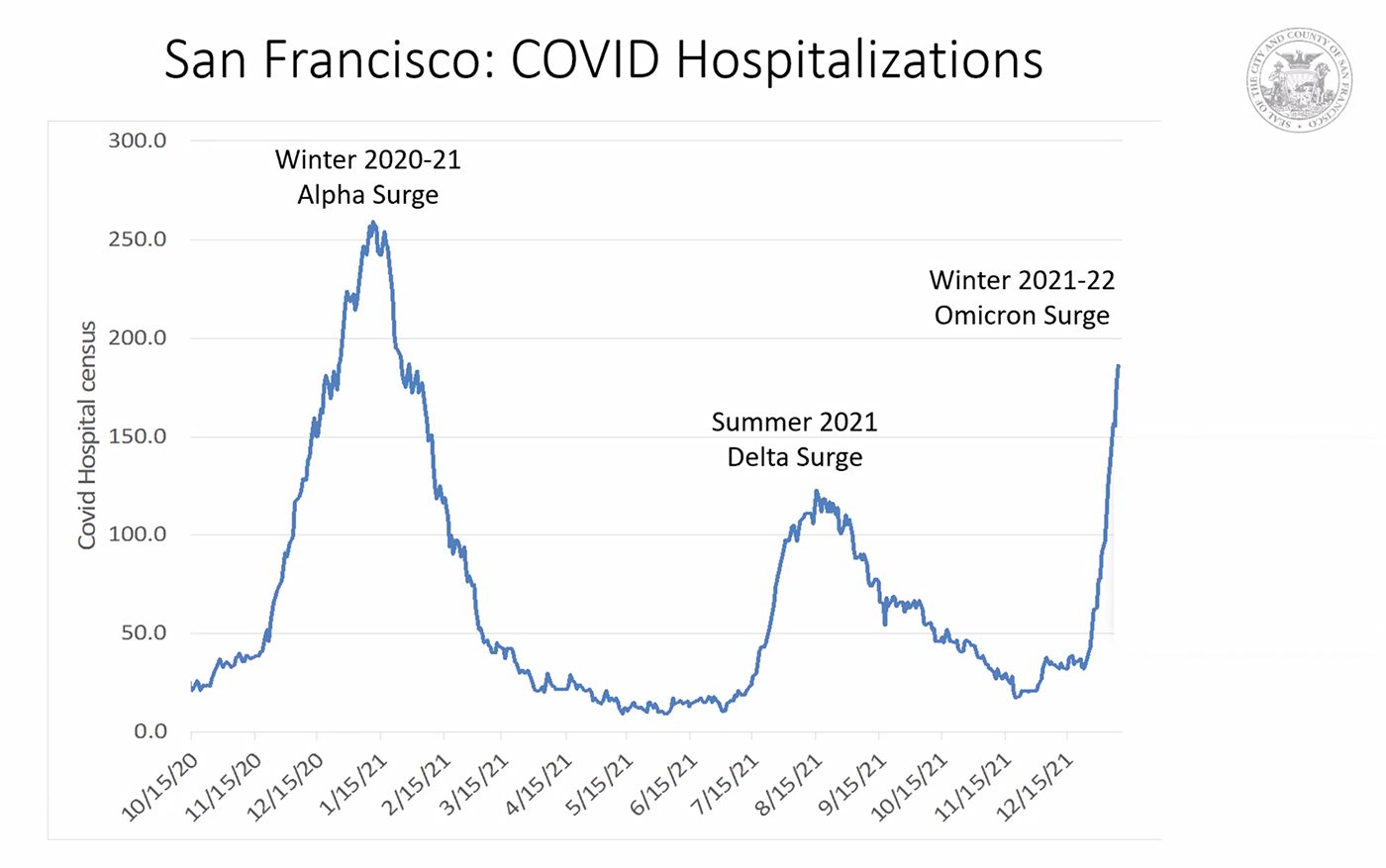The numbers of new recorded COVID cases are now reflecting New Year's Eve celebrations, and across the Bay Area, cases took a huge vertical jump on Monday, with significant new totals coming from the East Bay and South Bay.
Monday's new case counts and hospitalizations are in, reflecting testing done late last week and over the weekend — but not reflecting all the at-home testing that is likely occurring. For San Francisco, this has meant 8,300 new recorded cases of COVID in the first six days of 2022, bringing the seven-day average of daily new cases to 1,386 (as of Jan. 3) and counting.
In Santa Clara County, the case count took a jump of 14,700 on Monday, bringing the county cumulative total to 203,430 cases — a one-day jump of 7.8%.
And in Alameda County, where the county dashboard is apparently misaligned with state data, the new state tally of cases brought the cumulative count up by nearly 24,000 after a lag over the weekend — a one-day jump of 17%.
Across the Bay Area, weekend totals brought new cases up a staggering 7%, to 795,130. To put that in perspective, as the nine-county region is poised to cross the 800,000 mark today, the Bay Area had just over 600,000 cases as of Thanksgiving — a 33% leap in just six weeks.
While Omicron has tended to produce less severe illness, particularly among the vaccinated and boosted, the widespread prevalence of virus in our region means that it is finding more of the unvaccinated and sending more of them to the hospital — although at a somewhat lower rate than in previous surges.
San Francisco's director of Public Health Dr. Grant Colfax shared the graph below showing how the current hospitalization surge compares to previous surges. And while it may catch up to last winter's level, health officials do not anticipate a strain on intensive-care units — and hospitalizations are not keeping pace with the surge in cases.

In related news, Axios released a new poll Tuesday showing how many Americans now know someone who has had COVID, and just how many more vaccinated people have found themselves infected with Omicron compared to Delta.
36% of vaccinated Americans polled who said they've had COVID said that the infection came after vaccination — compared to 22% answering the same question in mid-November, and 6% last summer.
And, now, nine in ten Americans say they've known someone with COVID.
The poll also found that 52% of respondents — the highest number since this poll began being conducted — now say it will be a year or more, or never, before they can get "back to normal" in a post-pandemic way.
This is not, of course, as reliable as actual public-health data, but it's informative nonetheless.

